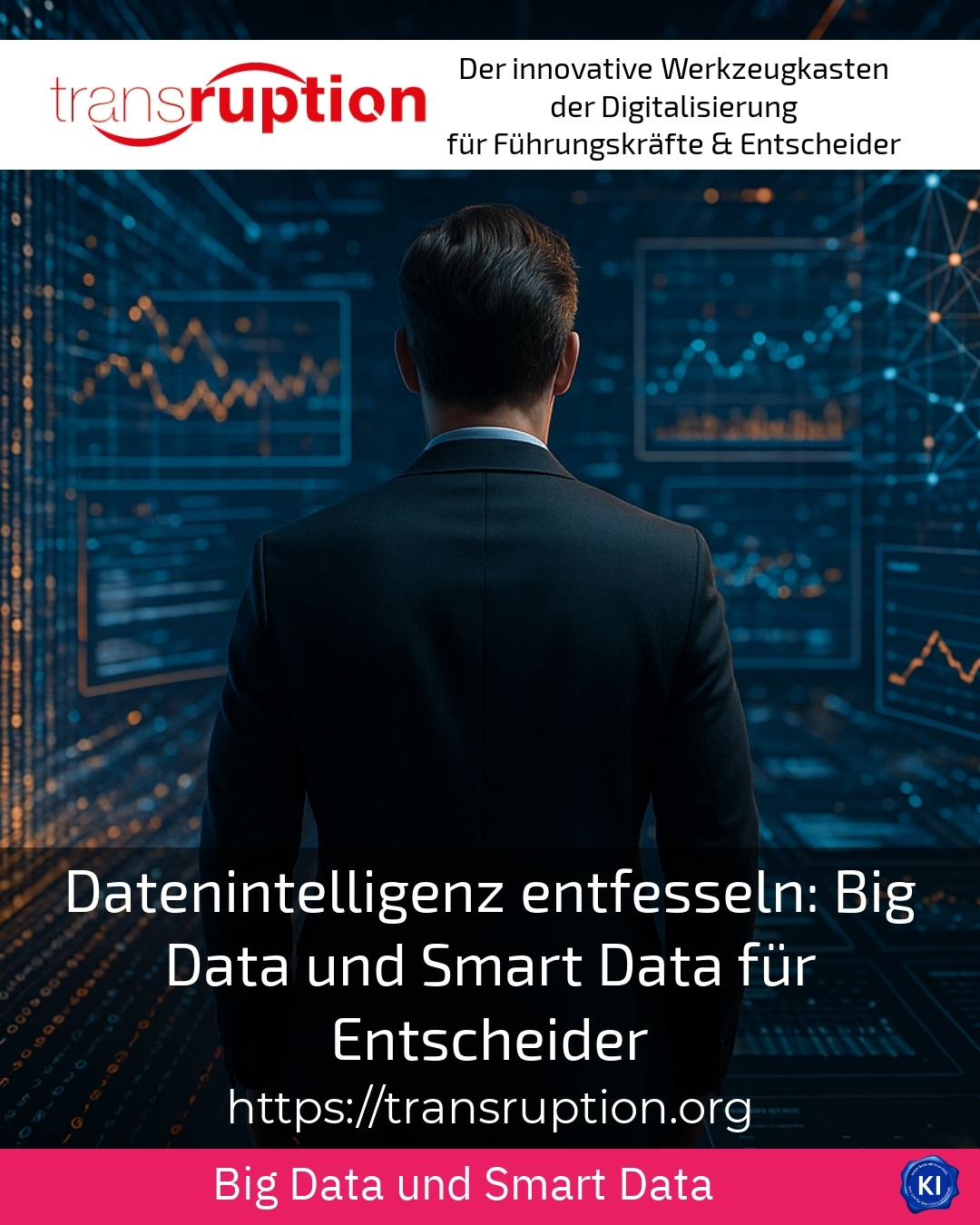Today, data intelligence is an indispensable tool for companies to remain competitive in the digital world. It makes it possible to analyse huge amounts of data and gain valuable insights that are essential for making well-founded business decisions[1]. Big data, which relies on large volumes of data, is often compared to smart data, which focuses on the quality and usefulness of this data[2][3].
More and more companies are using data intelligence to optimise their business processes and gain a competitive advantage through data-driven decisions. One example of this is the analysis of customer behaviour data in retail in order to develop personalised marketing campaigns[1]. Similarly, car manufacturers use data intelligence to optimise production processes and plan maintenance with foresight[1].
Data intelligence: from big data to smart data
Big data describes huge, often unstructured volumes of data that originate from various sources. This data can relate to payment transaction data in finance, sensor data in industrial production or customer interactions in retail[1]. However, the sheer volume of data is not enough to gain valuable insights. This is where data intelligence comes in by transforming this raw data into smart data that represents structured, reliable and actionable information[1][3].
One example of the transformation of big data into smart data is the analysis of patient data in the healthcare sector. By processing and analysing this data, doctors can make informed decisions, improve the quality of treatment and reduce costs[1].
GraphQL and API integrations
Modern approaches to data integration utilise technologies such as GraphQL and robust API integrations to connect different data sources and create consolidated data sets. These technologies support data intelligence by increasing data quality and accelerating processing speed.
Data intelligence in practice
Data intelligence is used in many industries to optimise business processes and drive innovation. One particularly interesting field is predictive maintenance in industry, where sensor data and artificial intelligence can be used to predict and prevent machine failures[2][9].
BEST PRACTICE at the customer (name hidden due to NDA contract)A company in the automotive industry used data intelligence to monitor production processes and carry out process optimisations. With the help of sensor data, efficiency was increased and product quality improved.
Another example can be found in marketing, where data intelligence is used to analyse customer behaviour data and develop personalised offers. This enables companies to strengthen customer loyalty and increase sales[4][9].
kitab for the future
In the future, it will be crucial for companies to continuously develop their data intelligence in order to be able to react flexibly to changing market conditions. This also includes the integration of new technologies such as cloud computing and edge computing in order to accelerate data processing and increase scalability.
Data intelligence for decision-makers
Managers and decision-makers benefit from data intelligence by being able to make informed decisions based on solid analyses. The advantage of smart data is that it provides precise and actionable information that can be directly integrated into the business strategy[2][7].
Particularly in times of digital transformation, it is crucial that companies recognise their data intelligence as a key success factor and continuously develop it further[5].
My analysis
Data intelligence is a key driver of innovation and competitiveness in many industries. By transforming big data into smart data, companies can gain valuable insights that help them to optimise their processes and make data-driven decisions. The integration of technologies such as artificial intelligence and machine learning further supports this process.
Further links from the text above:
From big data to smart data with data intelligence: how to run your company successfully
Big data vs. smart data: is more always better?
For more information and if you have any questions, please contact Contact us or read more blog posts on the topic TRANSRUPTION here.















